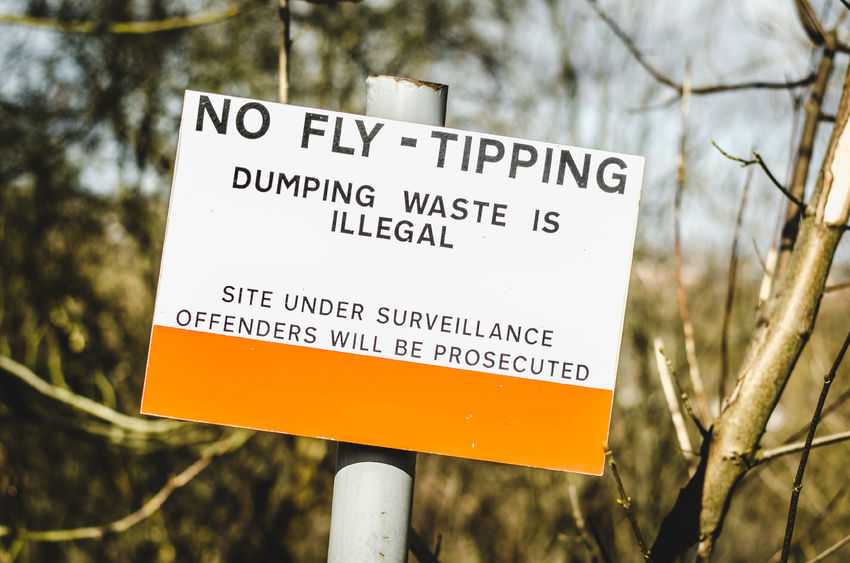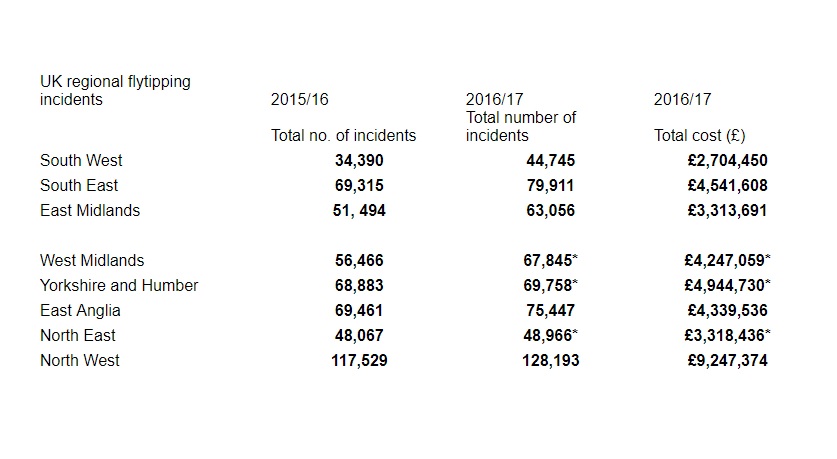
An agricultural expert is warning of the ‘hidden cost’ of flytipping, after it was revealed that councils have spent almost £60m cleaning up dumped waste in the past year.
Recently-released figures from Defra revealed that more than one million incidents of fly-tipping were dealt with by councils in England in 2016-17, costing taxpayers nationally £58m to clear up.
There was a 7% rise in incidents – the fourth year in a row that incidents increased.
Every January, councils see a surge in flytipping, with rogue residents and traders dumping post-festive waste, including old Christmas trees.
William Nicholl, head of insurance specialist Lycetts’ rural division, warns that the latest figures, as high as they seem, are not a true reflection of the cost of flytipping across England.
The figures only account for flytipping incidents on council land, not private land.

Shoulder the burden
Farmers who fall prey to this crime are having to shoulder the burden, responsible for meeting the cost of clearing rubbish from their land themselves – at an average cost of £1,000 per incident.
They are also liable if the dumped rubbish damages the countryside.
Mr Nicholl said: “Farmers are well aware of this issue and are saddened by the visual impact it has on the countryside they maintain, as well as it being a nuisance and inconvenience when trying to get on with their normal, daily jobs.
“However, I don’t think that farmers are as aware that, should they fail to deal with incidences of flytipping on their land and it leads to environmental damage, they could be held liable under the Environmental Protection Act 1990.
“With many authorities looking at introducing charges for bulky waste and organic waste collections and charging for dumping waste at council-run tips, there is a fear that flytipping incidents on farmland will increase.”
'Be vigilant'
Mr Nicholl outlined a number of ways in which farmers can help protect themselves against flytippers.
“Be vigilant, communicate with neighbours and report suspicious vehicles to the authorities,” he said.
“Deter would-be flytippers by ensuring that fields, particularly those which are roadside, are gated and locked where possible. If the problem persists, consider setting up security lights and a camera. This will help provide crucial evidence should the council decide to investigate.
“Finally, and most importantly, make sure that any rubbish dumped on your land is disposed of properly. By failing to remove the waste or moving it on to public land, you will leave yourself open to prosecution and could face fines of tens of thousands of pounds.”
